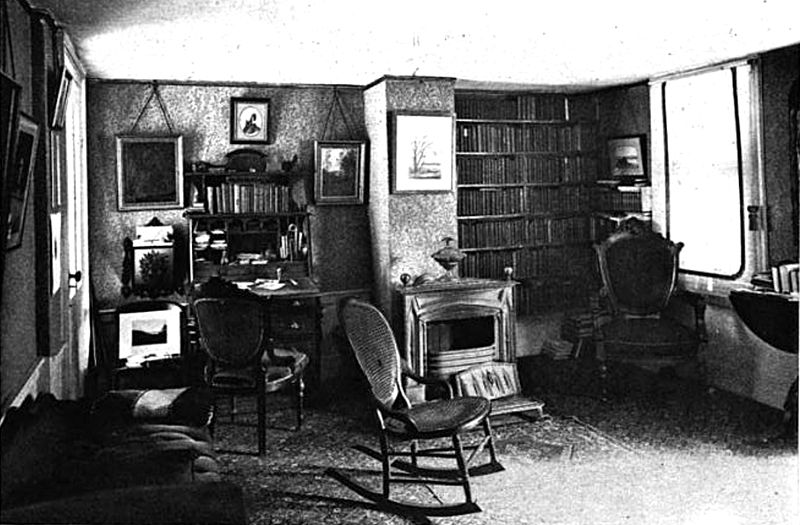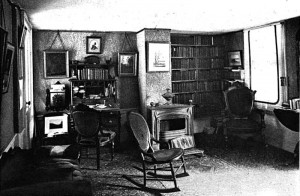By the time we get around to the how-to books with poetry, we’ve already admitted something – probably not to our detriment – namely, that we’ve stopped thinking of competing with the great white dead males. In fact, we stopped thinking about that quite some time ago and now all we want to do is to get something half decent onto the page. We might want to admit that to ourselves, and let’s admit some more comforting and encouraging things too – that this we are living through one of poetry’s occasional bronze ages, that poetry has retreated to the universities and schools as something merely educational and therapeutic, that whatever (minor) poetry is published is chiefly of interest to other poets in the way that new model railways are chiefly of interest to other railway modellers, and that this has therefore become exactly the kind of context within which self help manuals are entirely appropriate. So here are the best three.
Scotland might want to argue for Edwin Morgan, but in practical terms the bronze age really got underway with the death of Philip Larkin in 1985 – and you could make an argument for dating it earlier, to the moment of Auden’s flight to New York in 1939. The way poets like that learned their trade was fourfold: (1) fascination with words and language (2) observation of the world around them (3) deep knowledge of and extensive imitation of earlier writers (4) reverence for their craft – however well that reverence might sometimes be concealed. The way to use how-to books in writing poetry is to facilitate a similar process for yourself.
Which is why I’d begin with The Way to Write Poetry by Michael Baldwin; it’s the oldest of the three guides, its written by a very good minor British poet, and it’s committed and passionate in a way that modern British middle class manners would find embarrassing. Perhaps because Baldwin himself had had to fight for recognition, he believes wholeheartedly in you as the student of poetry – keep a notebook with you at all times, he says, look, listen. Give your poems time to grow before you commit too much to paper (excellent advice), read and read, love language (uniquely, amongst these guides, he recommends the poems of D.H. Lawrence for their sheer drunkenness and excess) and remember that your poems are yours but don’t forget your reader.
It’s one to beg or buy, because it will endlessly enthuse you: Baldwin welcomes you to the fellowship of poets before you feel you deserve to belong and reminds you that no one really feels they deserve to belong; not, at least, if they are any good. But that’s where he finds himself in conflict with a modern master, James Fenton in An Introduction to British Poetry.
With Larkin gone, James Fenton is the best male poet in the top five living British poets left, and he contends almost from the beginning that you need an arrogance, a depth of ego, just to have enough courage to confront the empty page – just like painters, he says, and immediately you realize both that he’s right and that this very factor is one of those carrying the bronze age into its third decade.
What Fenton’s offering, though, isn’t arrogance but a thoroughly enjoyable guided tour through the classic forms of poetry as seen by a man who has engaged meaningfully with them all. There are plenty of guides to the poetic forms out there, but this is the guided tour of the art gallery given by the painter, the one with all the insider secrets and drunken, late-night stories. Fenton understands, and can help you understand, how the living English language interacts with forms like the sonnet, using both historical background, examples and his own working experience. This is precious information – he’s letting you in on what you can get away with: how you can employ a form in the right way without it crushing your poem to death. There’s a lot of belief to be garnered here.
Baldwin’s given you a writerly start, and Fenton’s shown you around, but maybe you still feel yourself in need of something structured: you need lessons. A pupillage of sorts, an apprenticeship, and for this you can turn to The Ode Less Travelled by Stephen Fry.
Stephen Fry’s a master of word games, of course, and there is something of the guided crossword puzzle about this mid-decade best seller. The poetic forms and the problems they pose fascinate him more, you sense, than the poems that could coalesce around them. But you’ve got Baldwin and Fenton for that. What Fry’s giving you is a step by step set of instructions – write a few lines like this: write some ballad verses about that. Now a villanelle, please; and all of this is invaluable, pressure-free practice, a relatively painless means to fill the notebook Baldwin had you start. Finish the book and you’ll have tried your hand at every major form, and you’ll have the beginnings of instinct for the interface of verse, poetry and form. The chances are good that a real poem would have come to you along the way.
All three books have good advice on how to move on into the poetry world, joining groups, submitting to magazines, reading to audiences and so on. This article that’s actually about writing computer code has something for you that you won’t find elsewhere. But in the end, there is no substitute for the main path – (1) fascination with and learning about words and language (2) observation of the world around (3) deep knowledge of and extensive imitation of earlier writers (4) reverence for their craft and consistent hard work. The best young poet I ever knew was also the hardest worker. Twenty years, four collections and a Selected Poems later, she hasn’t slackened off. Dylan Thomas wasn’t wrong: you can only write so many hours in every day. But you can write for that many, and writing – however badly, with however much pain – is, in the end, the only thing.


When we lived in Edinburgh there was, for a few years, a lively poetry reading “scene”: Norman MacCaig, Alan Jackson, Edwin Morgan, Robert Garioch, Sorley MacClean, Peter Morgan (if memory serves). Somewhere I heard Gavin Ewart, but I’m not sure it was in Edinburgh.
Anyway, much though I like Larkin, it strikes me that his chum Amis might be likelier to give advice, or at least description, on writing poetry. Did he ever do so?
Description, certainly – he ran a weekly poetry column in one of the tabs with a view to introducing a general readership to the classics of British lyrical poetry. Very successful – there were at least two anthologies from the man as a result. And of course he taught creative writing in the United States of Eisenhower and Kennedy, the lucky dog, and saw the country at its absolute height. There’s a glorious passage in his memoirs in which he sights New York for the first time and realizes that he’s been lied to about the US his entire life, and that he’d just found what would always be his second country. By all accounts, he was a passionate and brilliant university lecturer. Larkin was a great teacher, but of librarianship, not poetry: he’d run after-hours lessons for young colleagues working towards qualification, and was a locally-famous encourager and supporter, for all his wider reputation as a grouch and recluse. The festschrift the library world made for him after his death was a different kind of reaction in every way from the postmortem stuff poetry dealt out to him.
On developing a critical apparatus.
Should it rhyme
This poem of mine?
Rime fausse
Is so much toss.
Help! What’s Rime fausse? “Free” whatever? Anyway, consider me caught out!
A false rhyme is one that rhymes the vowel but not the consonant: as in ‘rhyme’ and ‘mine’.
Or so we were told at school. (It had other names too.)
You’ll observe that the second “rhyme” above rhymes the consonant (a soft sibilant) but not the vowel. Neither is so hateful, though, as the rhyme that’s a reading rhyme only – that doesn’t rhyme at all if you read it out. (For example, lettuce and puce.) People should be hanged for that.
I wonder whether that is the first ever case of someone giving lettuce and puce as an example of a reading rhyme. If so, my chest swells with pride.